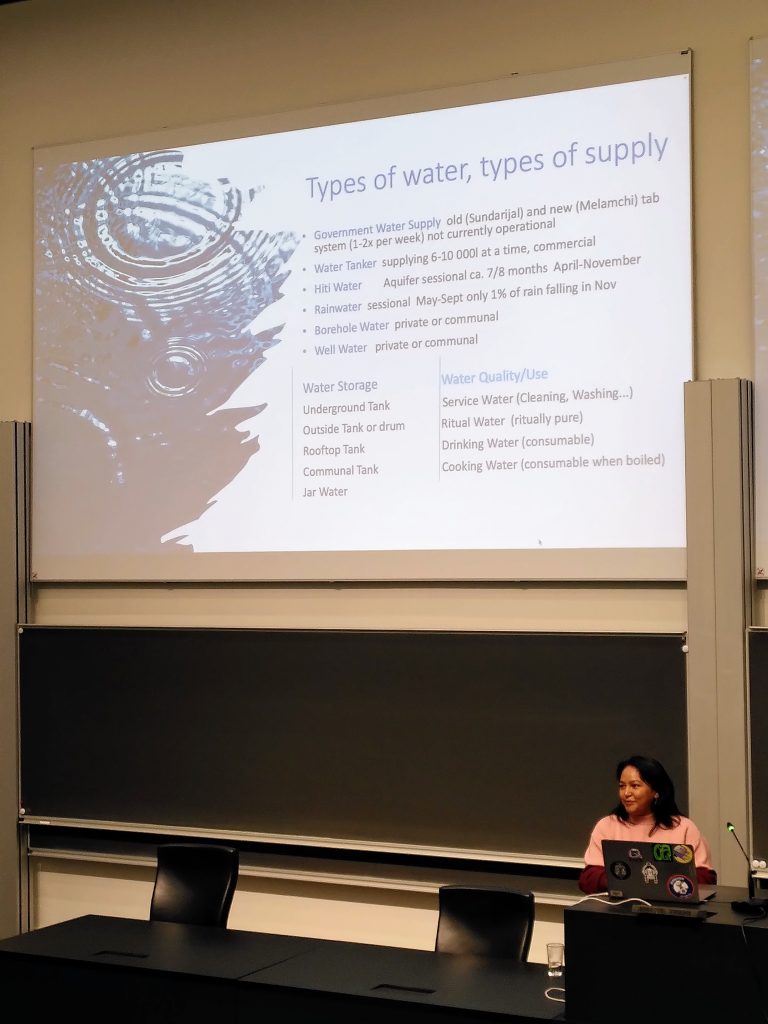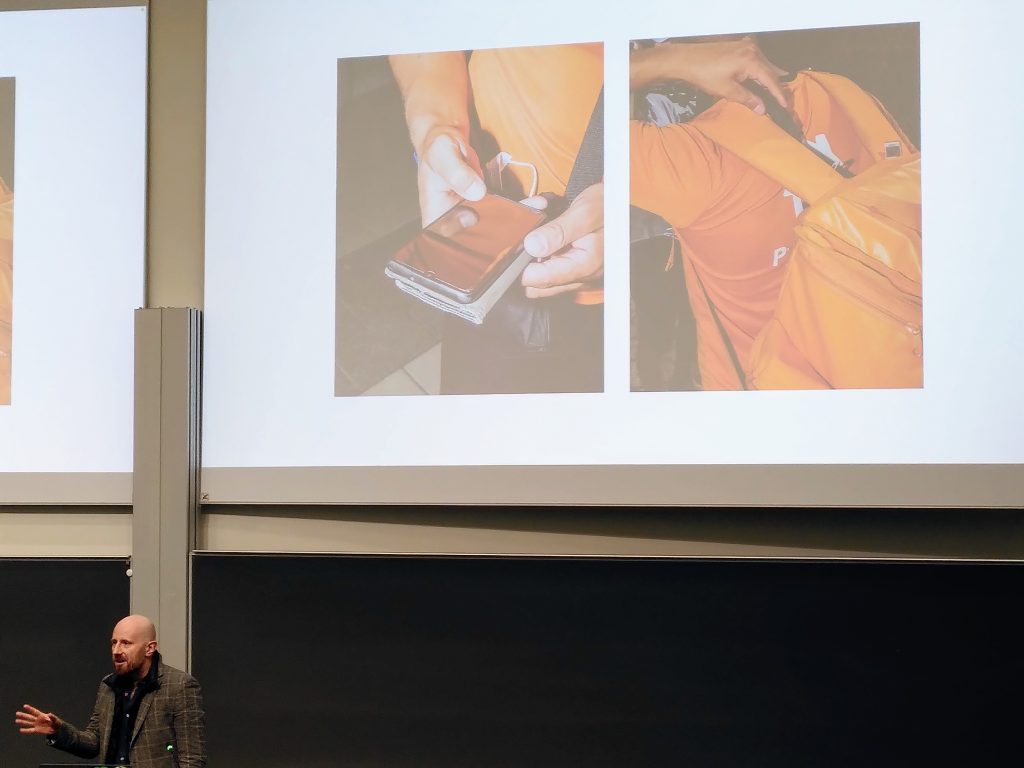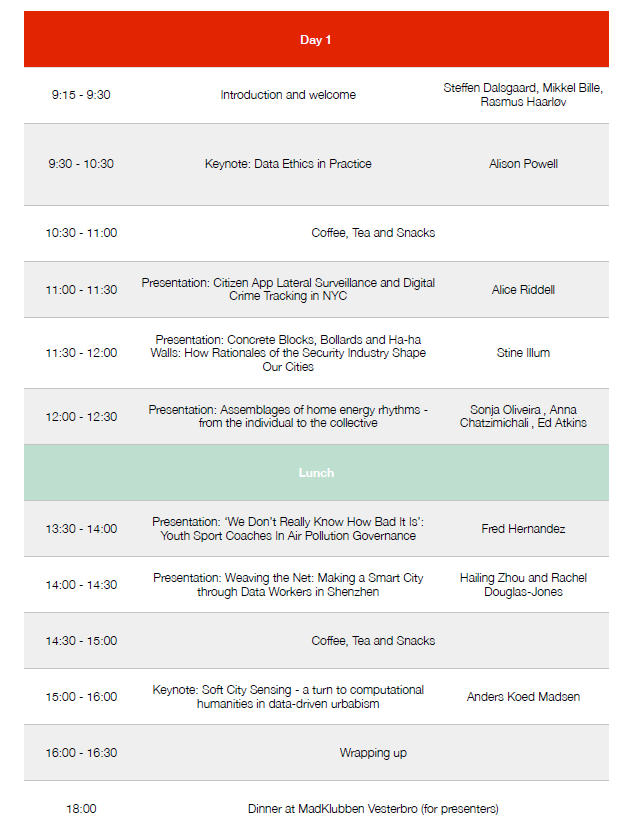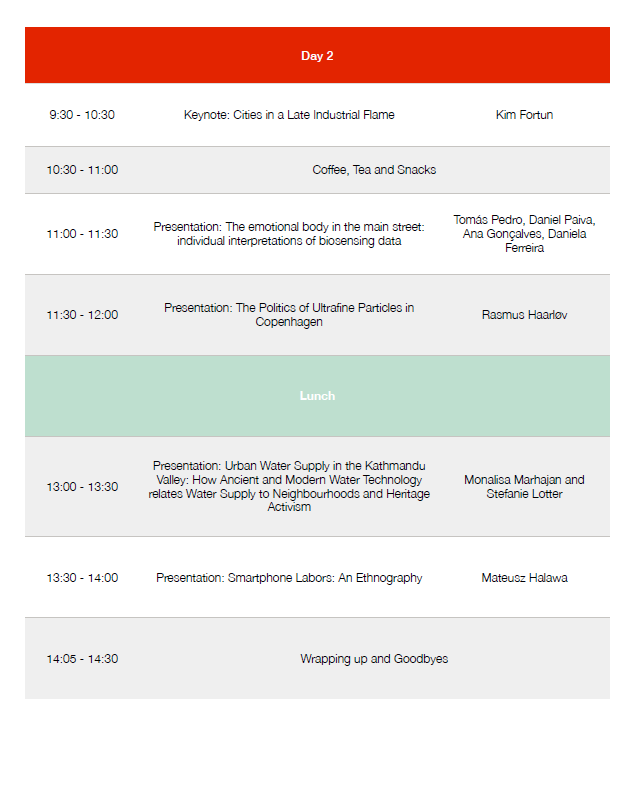Ethnographies of Urban Data and Technology (or What It's Like to Become a Blue Dot on a Screen)
by Astrid Grue
On 20-21 October, the IT University and the University of Copenhagen co-hosted a conference entitled ‘Ethnographies of Urban Data and Technology’ funded by the Independent Research Fund Denmark. The event invited scholars to present research on the ways in which urban data and technologies are deployed by various actors working with urban space, and to address the question of how people understand and inhabit environments that are shaped through data and technologies.
This resulted in two fruitful days of presentations, discussions, and socializing in Auditorium 0 and ITU’s sunlit Atrium, engaging with urban ethnographies of how data and technology play roles in relation to a wide range of topics. The line-up of speakers delivered rich ethnographic insights and theoretical reflections on counterterrorism measures in Copenhagen (Stine Ilum, UCPH); household energy management and rhythms (Sonja Oliveira, University of Strathclyde); interpretations of air pollution data among youth sport coaches in California (Fred Ariel Hernandez, UC Irvine) and the politics and contestations surrounding air pollution in Copenhagen (Rasmus Haarløv, ITU); interpretations of wearable biosensing devices in a Lisbon street (Tomás Pedro, University of Lisbon); and urban water supply in the Kathmandu Valley (Monalisa Marhajan, Kathmandu University).
From Rachel Douglas-Jones (ITU), we learned about data workers in Shenzhen, China, employed to collect data with the aim of managing the city’s migrant population within a smart cities framework; and Alice Riddell (UCL) showed us the streets of Brooklyn where the crime and safety tracking app Citizen accentuates the city as a space of security, thus redirecting everyday behaviors by making people feel less safe when, say, walking their dog. From Warsaw, Poland, we got a view into the autoethnography of Mateusz Halawa (Polish Academy of Sciences) who worked for a food delivery service during pandemic lock-down, raising questions of how riders are both enabled and constrained by their attachments to smartphones, and what it’s like to become a part of the city’s infrastructure as a moving blue dot on a screen.
Keynote speaker Anders Koed Madsen (Aalborg University Copenhagen) raised the question of how to inscribe our relations to urban space with more humanistic sensibility, thus maintaining a sensitivity towards citizens’ own concerns rather than framing urban problems from the top down as often happens within a data-driven urbanism framework. Kim Fortun (UC Irvine) in her keynote lecture explored cities through a late industrial frame, addressing ways in which environmental hazards and harms are produced through historically sedimented, tight couplings between different kinds of systems (technological, ecological, discursive, atmospheric, etc.). Finally, keynote speaker Alison Powell (LSE) reflected on data ethics as practice, exploring how processes of trust and autonomy modelled through such practice might connect with other considerations that apply at different scales across urban experience.


Conference program
You can find the full conference program and abstracts here.

